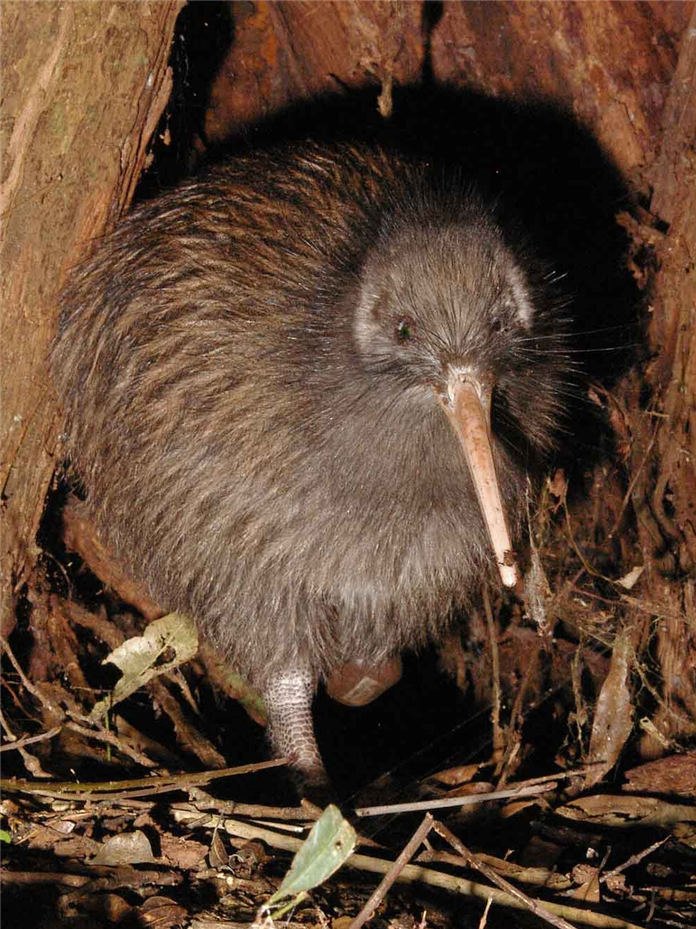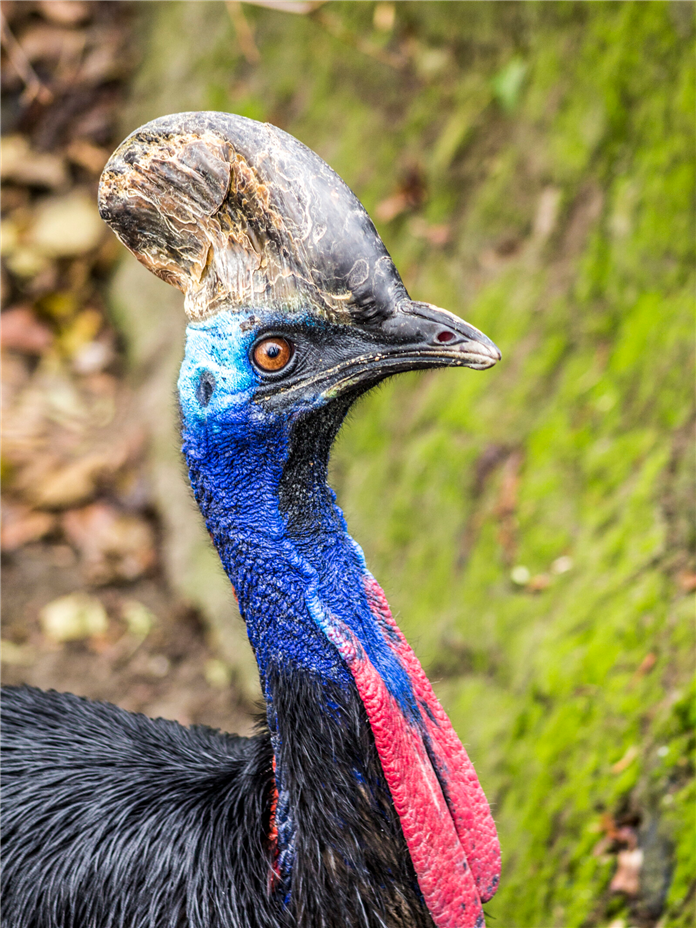Kiwi, a chicken-sized flightless bird, is no less than a weird wonder! These are endemic to New Zealand, portrayed as official and unofficial symbols of the country. Take the quiz to test your knowledge about this bird.

Tap to Read ➤
Fun Facts About the Kiwi Bird
Raksha Kulkarni


Kiwi, a chicken-sized flightless bird, is no less than a weird wonder! These are endemic to New Zealand, portrayed as official and unofficial symbols of the country. Take the quiz to test your knowledge about this bird.

10
9
8
7
6
5
4
3
2
1
0
9
8
7
6
5
4
3
2
1
0

There are 5 species – Brown Kiwi, Great Spotted Kiwi, Little Spotted Kiwi, Tokoeka, and the rarest one - Rowi.
There are 5 species – Brown Kiwi, Great Spotted Kiwi, Little Spotted Kiwi, Tokoeka, and the rarest one - Rowi.
Did You Know?
Did You Know?

10
9
8
7
6
5
4
3
2
1
0
9
8
7
6
5
4
3
2
1
0

Only 5 Little Spotted Kiwis were left, which were then rehabilitated to Kapiti Island in early 20s. Their population went from 5 to 1,200 individuals! Now they can only be found on the island and not on the mainland.
Only 5 Little Spotted Kiwis were left, which were then rehabilitated to Kapiti Island in early 20s. Their population went from 5 to 1,200 individuals! Now they can only be found on the island and not on the mainland.
An Achievement!
An Achievement!

10
9
8
7
6
5
4
3
2
1
0
9
8
7
6
5
4
3
2
1
0

The birds come out of their burrows to feed on insects, only at night. An interesting fact is that these birds even mark their territory with their droppings.
The birds come out of their burrows to feed on insects, only at night. An interesting fact is that these birds even mark their territory with their droppings.
Unusual Behaviors
Unusual Behaviors

10
9
8
7
6
5
4
3
2
1
0
9
8
7
6
5
4
3
2
1
0

Ratites are flightless birds that include ostrich, rhea, emu, cassowary, and kiwi.
Ratites are flightless birds that include ostrich, rhea, emu, cassowary, and kiwi.
Did You Know?
Did You Know?

10
9
8
7
6
5
4
3
2
1
0
9
8
7
6
5
4
3
2
1
0
The bird has poor eyesight, even though it is nocturnal. Hence, it relies on its great sense of smell to hunt. It also has big ear openings and a fairly good sense of hearing.
The bird has poor eyesight, even though it is nocturnal. Hence, it relies on its great sense of smell to hunt. It also has big ear openings and a fairly good sense of hearing.
A Fun Fact
A Fun Fact
10
9
8
7
6
5
4
3
2
1
0
9
8
7
6
5
4
3
2
1
0
The feathers resemble fur of mammals as kiwi has evolved to suit its lifestyle on ground. Also, the feathers molt all-round the year, unlike other birds.
The feathers resemble fur of mammals as kiwi has evolved to suit its lifestyle on ground. Also, the feathers molt all-round the year, unlike other birds.
Did You Know?
Did You Know?
10
9
8
7
6
5
4
3
2
1
0
9
8
7
6
5
4
3
2
1
0
Its unusual beak boasts of all the characteristics. The sensory pits and the overall structure of its beak helps it to sense its prey even moving underground.
Its unusual beak boasts of all the characteristics. The sensory pits and the overall structure of its beak helps it to sense its prey even moving underground.
Unusual Characteristics
Unusual Characteristics
10
9
8
7
6
5
4
3
2
1
0
9
8
7
6
5
4
3
2
1
0
Kiwi birds have powerful bones to aid them in running fast, have great sense of smell unlike any other bird, and they also have whiskers.
Kiwi birds have powerful bones to aid them in running fast, have great sense of smell unlike any other bird, and they also have whiskers.
Did You Know?
Did You Know?
10
9
8
7
6
5
4
3
2
1
0
9
8
7
6
5
4
3
2
1
0
A female kiwi lays eggs almost 15% - 25% of her body size. In comparison, human babies take only about 5% of their mother’s body. Also, these eggs are laid in a burrow instead of nests.
A female kiwi lays eggs almost 15% - 25% of her body size. In comparison, human babies take only about 5% of their mother’s body. Also, these eggs are laid in a burrow instead of nests.
An Interesting Fact
An Interesting Fact
10
9
8
7
6
5
4
3
2
1
0
9
8
7
6
5
4
3
2
1
0
The birds incubate their eggs for around 74 – 90 days with a lot of effort. The period is almost double than that of any bird, and closer to gestation periods of small mammals.
The birds incubate their eggs for around 74 – 90 days with a lot of effort. The period is almost double than that of any bird, and closer to gestation periods of small mammals.
Long Time!
Long Time!
10
9
8
7
6
5
4
3
2
1
0
9
8
7
6
5
4
3
2
1
0
The chicks are hatched fully-feathered and have nutritious yolk sacs attached to their bellies, which keep them full for 10 days. Hence, they don’t need to be fed. They start foraging for food after the first 10 days.
The chicks are hatched fully-feathered and have nutritious yolk sacs attached to their bellies, which keep them full for 10 days. Hence, they don’t need to be fed. They start foraging for food after the first 10 days.
Independent Babies!
Independent Babies!